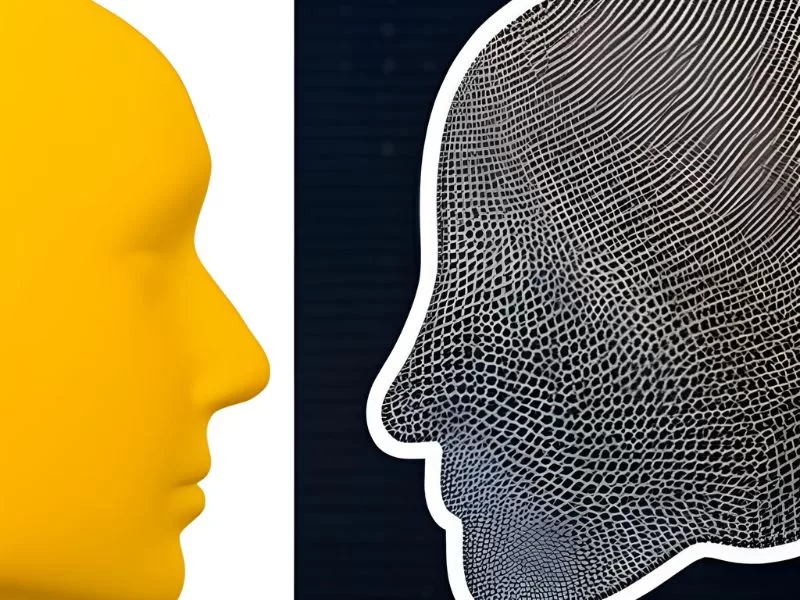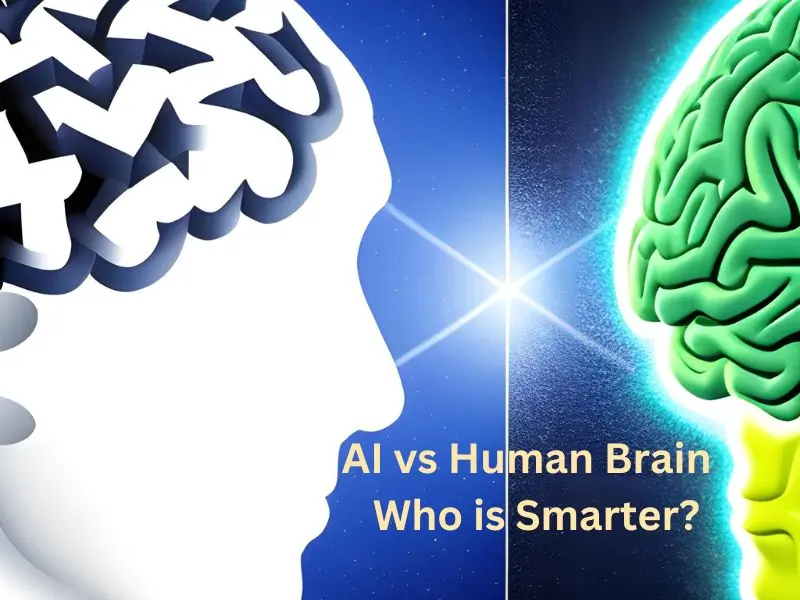AI vs Human Brain – Who is Smarter? In today’s world of rapid technological advancements, the question of who possesses greater intelligence – artificial intelligence (AI) or the human brain – has sparked immense intrigue.
Let’s dive deep into the capabilities of AI and the remarkable intelligence of the human brain to explore this fascinating topic. We’ll also delve into the potential synergies between these two forms of intelligence, ultimately revealing the true dynamics of the battle for intellectual supremacy.
Understanding Artificial Intelligence (AI)
To begin our exploration, let’s establish a clear understanding of AI. Artificial Intelligence refers to the simulation of human intelligence in machines that are programmed to perform tasks that would typically require human intelligence.
AI systems can process vast amounts of data, learn from experiences, and adapt to new situations. There are two primary types of AI: Narrow AI, which is designed to perform specific tasks, and General AI, which possesses the ability to understand, learn, and apply knowledge across various domains.
What are the Capabilities of AI?
One of the defining strengths of AI is its remarkable processing power. AI systems can handle vast amounts of data and perform complex computations at incredible speeds, far surpassing the human brain in terms of raw processing capabilities.
Additionally, AI excels in data analysis and pattern recognition, enabling it to identify trends, make predictions, and find correlations that may elude human observation. This analytical prowess empowers AI to provide valuable insights and support decision-making processes with unparalleled efficiency.

The Human Brain’s Intelligence
While AI possesses impressive computational abilities, the human brain exhibits a remarkable form of intelligence rooted in its complexity and structure. The human brain consists of billions of interconnected neurons, forming intricate neural networks. This intricate structure enables the brain to process information holistically, making connections between seemingly unrelated concepts and fostering deep understanding.
Furthermore, the human brain possesses the unique capacity to learn from experiences, adapt to new situations, and continually refine its cognitive abilities. This dynamic nature of the human brain contributes to its exceptional intelligence.
AI vs Human Brain: Comparing Intelligence!
When comparing the intelligence of AI and the human brain, several factors come into play. Firstly, AI excels in processing power and speed, far surpassing human capabilities. It can analyze vast amounts of data and perform complex computations within seconds.
On the other hand, the human brain’s intelligence shines in its learning capacity. While AI requires extensive training to acquire knowledge, the human brain possesses an innate ability to learn and adapt to new information, drawing upon past experiences and combining them with creative problem-solving.
Emotional intelligence, a critical aspect of human intelligence, remains beyond the reach of AI. The human brain’s ability to perceive, understand, and respond to emotions gives us a unique edge in interpersonal relationships, empathy, and complex decision-making.
Furthermore, human intelligence is closely tied to creativity and imagination. The human brain’s capacity to generate novel ideas, envision possibilities, and engage in abstract thinking continues to set us apart from AI systems.
AI vs Human Brain: What are the Limitations?
While AI possesses impressive capabilities, it also has its limitations. AI lacks consciousness and self-awareness, remaining a tool driven by algorithms and data. It cannot experience emotions or possess subjective experiences like the human brain.
On the other hand, the human brain is susceptible to cognitive biases and subjective interpretations. Our thoughts and decision-making processes can be influenced by various factors, leading to errors in judgment.
Additionally, the human brain is subject to physical and biological constraints. It is bound by limitations such as memory capacity, processing speed, and susceptibility to fatigue.
AI, on the other hand, can operate tirelessly, processing vast amounts of data without succumbing to exhaustion.
The synergy between AI and the Human Brain
Rather than framing the debate as a competition, recognizing the complementary strengths of AI and the human brain is crucial. By combining the analytical prowess of AI with the human brain’s creativity, emotional intelligence, and critical thinking, we can unlock new possibilities.
Successful collaborations between AI and the human brain have already been witnessed in various fields. In the domain of medical diagnosis, AI systems can assist doctors in analyzing patient data, providing accurate and timely diagnoses.
In scientific research, AI algorithms can sift through massive datasets, uncovering patterns and accelerating discoveries.
Ethical Considerations
As AI continues to advance, ethical considerations become paramount. Privacy concerns arise as AI systems process vast amounts of personal data. Striking a balance between AI’s potential and safeguarding individual privacy becomes crucial.
Additionally, human decision-making remains essential in AI systems. Ensuring that decisions made by AI align with human values, ethics, and societal standards is vital to prevent potential biases or harmful outcomes.
The Future of AI and Human Intelligence
Looking ahead, the future holds tremendous potential for both AI and human intelligence. AI technologies will continue to advance, with the development of more sophisticated algorithms, improved learning capabilities, and enhanced problem-solving skills. Human intelligence, augmented by AI, will lead to new horizons.
By leveraging AI’s computational power, humans can amplify their cognitive abilities, empowering us to solve complex problems, make informed decisions, and address pressing global challenges.
Conclusion
In the ongoing debate between AI and the human brain, it becomes clear that each possesses unique strengths and limitations.
While AI outshines the human brain in terms of processing power and speed, the human brain’s intelligence lies in its adaptability, creativity, and emotional intelligence. Rather than positioning AI against the human brain, embracing their synergy can lead to remarkable advancements.
By combining AI’s analytical capabilities with the human brain’s intuition and ethical considerations, we can navigate the future intelligently and responsibly. The collaboration between AI and human intelligence holds the key to unlocking a new era of progress, innovation, and understanding.


